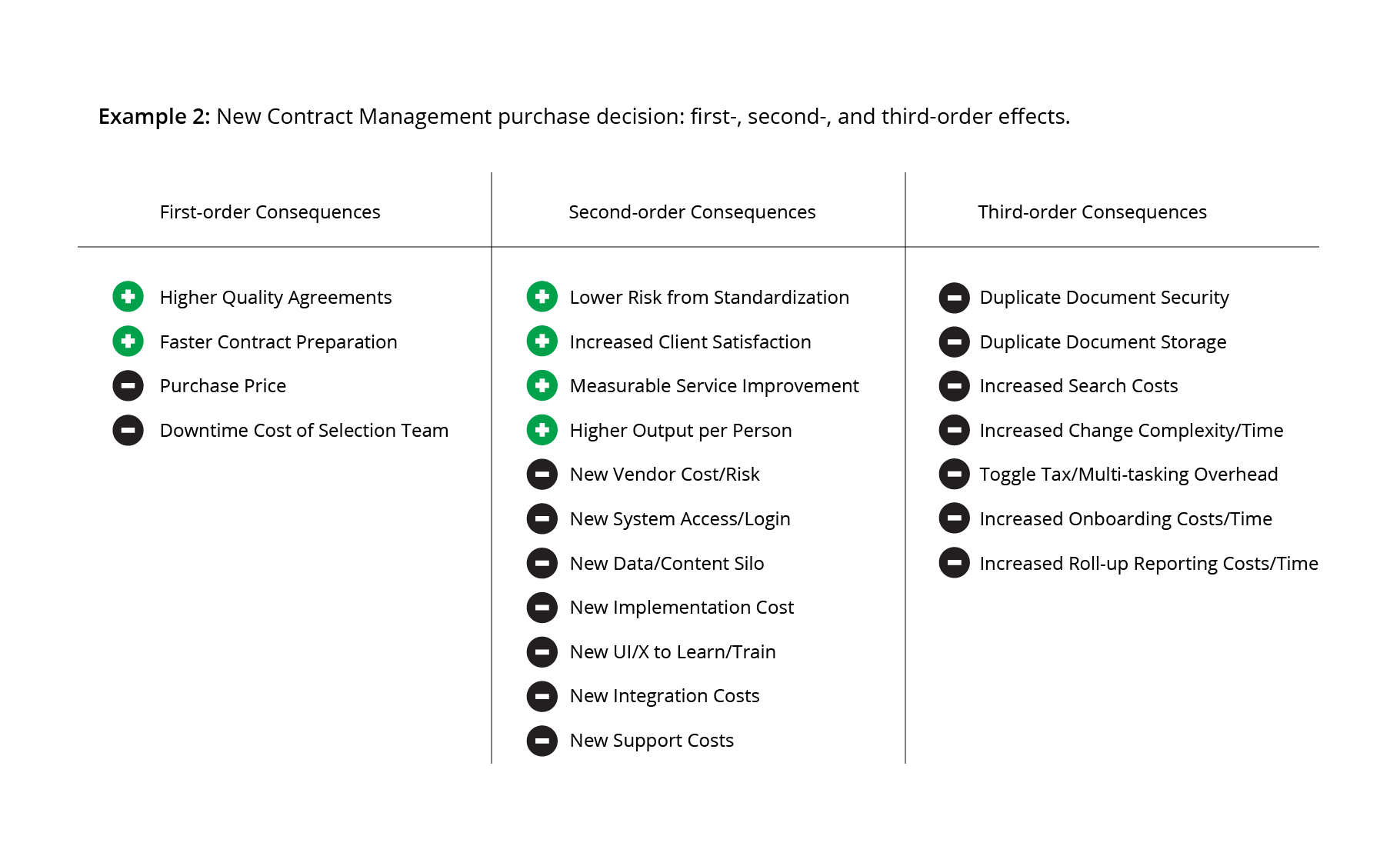The Best LegalTech Stack is No LegalTech Stack- part II
Now with the preamble out of the way from Part I, let's drill down into the LegalTech Stack issue.
2 min read
![]() Mike Tobias
:
Apr 18, 2024 11:04:08 AM
Mike Tobias
:
Apr 18, 2024 11:04:08 AM

Now with the preamble out of the way from Part I, let's drill down into the LegalTech Stack issue.
As with anything written on this blog, these positions are merely hypotheses and not presented as objective truths. They are meant to elicit conversations and generate creative abrasion to arrive at even better hypotheses or understanding. Yes, there is a certain amount of provocation included just for clicks/awareness, but the goal is to write some of these things down to help clarify our thoughts and get feedback to make the ideas better.
Instead of using our house buying example, let's pick a solution that lots of in-house legal teams have purchased or are considering purchasing; Contract (Lifecycle) Management. After investing in some kind of Document Management repository as a foundational technology, in-house teams seem to navigate directly to CLM. I personally don't think that's the right place to start, but we'll leave that discussion for another day.
Teams often purchase CLM solutions for perfectly clear reasons; they want the speed and quality of their contract preparation to increase to provide better service and lower their workloads.
As you can see from the same kind of example breakdown we used in Part I, the positive first- and second-order effects are often talked about and used as selling features. And to be clear, I'm not disputing those positive effects. What gets often disregarded are the second- and third-order effects (and I could go further into 4+).

Why do these not get considered? As we mentioned in Part I, engaging in second-order thinking isn't a natural process so it takes some real effort and discipline. Secondly, the time gap between making the actual buying decision and seeing the positive and negative consequences in action is typically quite long so the connection isn't as visceral.
Thirdly, and this is especially true with technology-oriented LegalOps personnel, there is a bias for action because it's your job to implement technology! Even though it might be better not to put something new in place right now.
And lastly, and perhaps most importantly, many of the technology purchase decision makers don't have any skin in the game. Meaning, they don't use the technology on a day-to-day basis, so they don't see the impact of their decisions or have to live with them.
Is it possible that the net of a CLM decision is positive? Yes, absolutely. But if you were rigorous about calculating even rough estimates for each of the positives vs. negatives, I think you might be hard pressed to reach an order of magnitude positive benefit.
Now, let's get to the "stack" part of the analysis. For each solution you are considering purchasing and implementing as part of your LegalTech Stack, you should also be analysing the second- and subsequent order effects.
When you start "stacking" these analysis tables one on top of each other, you can quickly see there are a lot of negatives that repeat themselves, and may even compound themselves negatively.
If you've ever seen an in-house legal team actively avoid using a new addition to their stack, you can be pretty sure the negatives have overwhelmed the positives for the end-users, and as such your investment has been a loser.
So, while it may be not be possible to avoid building some kind of LegalTech Stack, being rigorous about each layer or solution in your stack, might avoid some unneeded layers, wasting the time of your team members, and the saving some corporate funds.
Now with the preamble out of the way from Part I, let's drill down into the LegalTech Stack issue.
I'm fortunate that next week I'll be attending the Alternative Events In-House Technology Summit in the UK. I'm looking forward to seeing some old...
Last week, when introducing a new series of posts we intend to produce, we received feedback from some very scholarly people that "nobody has ever...